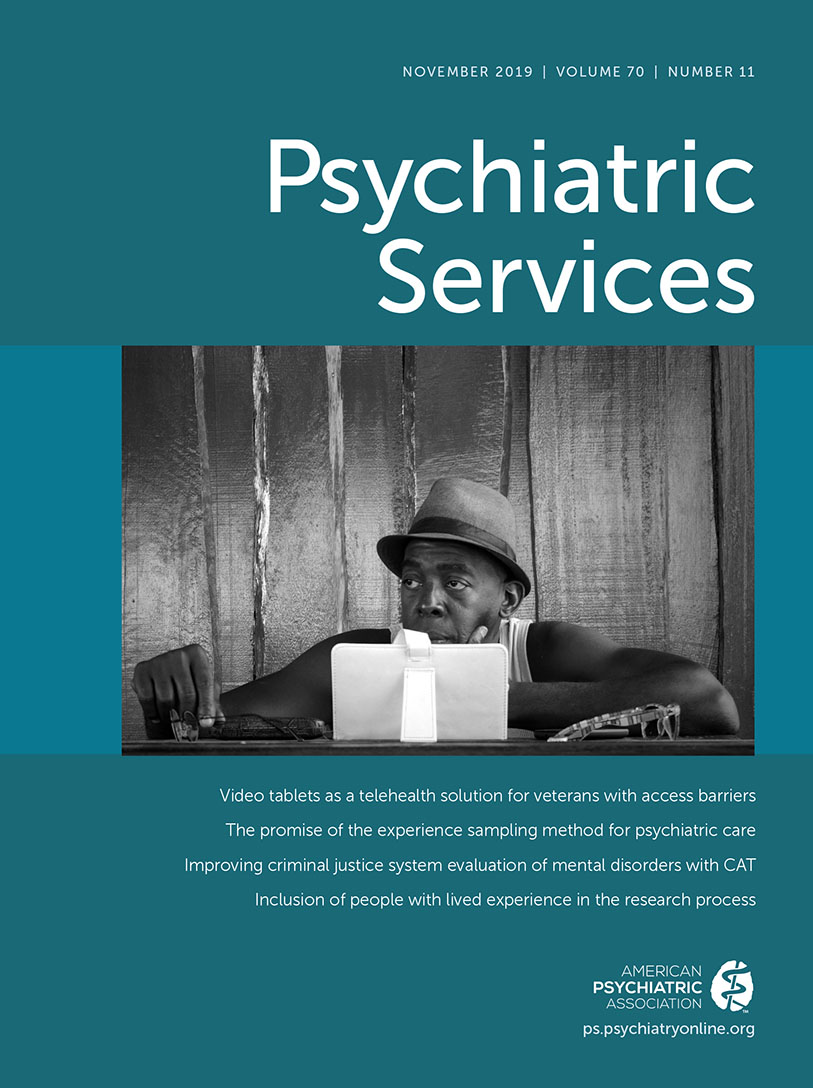TO THE EDITOR: As a long-standing admirer of the writings and career of E. Fuller Torrey, I read with interest recent Personal Account (1) Having been inspired by Dr. Torrey during my long career (he recruited me to the National Institute of Mental Health [NIMH] in 1970), I would like to provide an alternative view on the community mental health center (CMHC) program of the 1960s and 1970s.
From 1976 to 1980, I was director of the Mental Health Services Division of NIMH. In this role, I directed the federal CMHC program, which began in 1963 with the goal of establishing comprehensive community treatment programs throughout the United States. The federal funds provided a declining grant over an 8-year period requiring five essential services to individuals residing in “catchment areas” of 250,000 to 300,000 people. It was hoped that other sources of funds for financial support would substitute for the declining federal grant, especially state dollars as the state hospitals closed, which should have freed up funding for community-based care. This did not happen as anticipated, and instead third-party payments, especially Medicaid and private insurance, became the critical source of funding once the federal grant disappeared. Congress had to rescue the program several times during the Nixon Administration, which had proposed its extinction.
As Dr. Torrey points out, the CMHCs had a very mixed track record in providing services to the patients discharged from state hospitals during the era of deinstitutionalization. The CMHCs that were most successful in doing so were closely tied to the state mental health agency receiving funding from the state for this purpose. When I became the last federal director of the program, we made extra efforts to reorient the entire program toward deinstitutionalization and the need for services with the creation of the Community Support Program and with the drafting of new legislation enacted by Congress called the Mental Health Systems Act of 1980. This legislation would have prioritized the seriously mentally ill population for not only CMHCs but a variety of other programs and would have tripled the federal appropriation for this purpose. The election of Ronald Reagan in 1980 led to repeal of the Mental Health Systems Acts. Elections matter.
Dr. Torrey characterizes deinstitutionalization as a failure, and certainly for the many with “nowhere to go” it was. For others, it has led to a life in the community. For example, the Sheppard Pratt Health System, a not-for-profit behavioral health system in Maryland, has over 10,000 individuals with serious and persistent mental illness living long term in the community, and they are cared for in community mental health settings, supportive housing, employment, and rehabilitation programs. Many or most of these individuals would have been institutionalized long term in the state hospitals in Maryland in a prior era I remember well.
The CMHC program was also a mixed experience for psychiatrists. Some felt marginalized as CMHCs “demedicalized” care and treatment and emphasized social and preventive interventions. But for others, the CMHC programs led to the robust subspecialty of community psychiatry as exemplified by the members of the American Association of Community Psychiatrists. Those psychiatrists, now leaders in the American Psychiatric Association, have reinvigorated psychiatric treatment for people with severe mental illness, a trend that Dr. Torrey must applaud.
So the final verdict on the 1960s–1970s depopulation of state hospitals—whether the glass is half empty or half full—is debatable. Clearly, we must do better in providing services in the community setting, including reversing the criminalization of mental illness and providing more and better community care.

